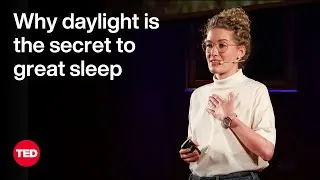Should You Use TO or FOR? - 5 Levels of English Grammar
174,138 views ・ 2020-04-28
請雙擊下方英文字幕播放視頻。
00:00
Hi, I’m Kasia.
0
919
1701
嗨,我是Kasia。
00:02
Welcome to Oxford Online English!
1
2620
2320
歡迎來到Oxford Online English!
00:04
This is a ‘5 levels’ lesson.
2
4940
1980
這是“ 5級”課程。
00:06
The lesson has five parts.
3
6920
2840
本課程分為五個部分。
00:09
Each section will give you a challenge.
4
9760
3240
每個部分都會給您帶來挑戰。
00:13
Each section is designed to be more difficult
than the previous ones.
5
13000
5000
每個部分的設計難度都比以前的難度更大。
00:18
You’ll probably find different parts easier
or more difficult.
6
18000
4600
您可能會發現不同的部分更容易或更困難。
00:22
This will help you to understand where you
have problems; in each section, we’ll give
7
22600
6179
這將幫助您了解問題所在。在每個部分中,我們將給出
00:28
you an idea of what you need to know in order
to understand the challenge fully.
8
28779
5720
您需要了解的一些知識,您才能充分理解挑戰。
00:34
Level one is beginner, so if you’re not
a beginner, you should skip to level two.
9
34500
7140
第一級是初學者,因此,如果您不是初學者,則應進階到第二級。
00:41
Ready?
10
41640
960
好了嗎?
00:42
Let’s go!
11
42600
3880
我們開始吧!
00:46
Look at five sentences.
12
46480
2140
看五個句子。
00:48
Complete each sentence with either ‘to’
or ‘for’.
13
48629
4610
用“to”或“for”完成每個句子。
00:53
Pause the video and do it now!
14
53240
5000
暫停影片並馬上開始!
00:58
Ready?
15
58240
1160
可以了嗎?
00:59
Let’s look at the answers.
16
59400
2279
我們來看看答案。
01:01
‘To’ and ‘for’ both have many different
uses in English.
17
61680
5540
“ To”和“ for”在英文中有很多不同用法。
01:07
Some are simple.
18
67220
2439
有些很簡單。
01:09
You use ‘to’ to talk about going somewhere.
19
69659
4181
您用“to”來談論去某地。
01:13
For example ‘go to the shop’, ‘go to
London’, ‘go to China’, and so on.
20
73840
9260
例如,“go to the shop”、“go to
London”、“go to China”等等。
01:23
There’s one common exception: you say ‘go
home’, without ‘to’.
21
83100
7880
有一個常見的例外:您說“go home”,而不需加“to”。
01:30
Use ‘for’ when you do something for someone
else.
22
90980
4059
當您為他人做某事時,請使用“ for”。
01:35
For example, you can hold something for someone,
carry something for someone, buy something
23
95039
5930
例如,您可以幫某人抓住某件東西、幫某人拿某樣東西、
01:40
for someone, and so on.
24
100969
3150
幫某人買東西,等等。
01:44
Use ‘to’ when you’re talking about an
end point in time or space.
25
104119
7341
在談論時間或空間終點時,請使用“to”。
01:51
In these cases, you often use ‘from… to…’
26
111460
4540
在這些事例中,您常用“from…to…”
01:56
For example ‘I’ll be here from Monday
to Friday.’
27
116000
5700
例如,“I’ll be here from Monday to Friday.”
/““週一到週五我會在這”。
02:01
‘The new road runs from the capital city
to the south coast.’
28
121700
7260
"The new road runs from the capital city to the south coast.“
/“新的公路從首都延伸到南海岸。”
02:08
You can also use ‘to’ with verbs of giving,
like in sentence four.
29
128979
5811
您也可以用“to”配授予動詞,如第四句。
02:14
However, with these verbs, it’s common to
use a structure without ‘to’.
30
134790
5680
但是,有些動詞,通常不搭配“ to”用。
02:20
For example, with ‘give’, you can give
someone something, or give something to someone.
31
140470
9300
例如,和“give”搭配用時,您可以給某人某物,或把某物給某人。
02:29
Both structures are possible, but the first
is more common.
32
149770
4270
兩種結構都有可能,但第一種更常見。
02:34
So, you can say: ‘Give the bottle to me.’
33
154040
5309
所以,您可以說:“Give the bottle to me.”/“把瓶子給我。”
02:39
Or: ‘Give me the bottle.’
34
159349
6200
或者:“Give me the bottle.”/“給我瓶子。”
02:45
Both are possible, but the second is more
common.
35
165549
3811
兩者都有可能,但第二種更常見。
02:49
These are some of the most common ways to
use ‘to’ and ‘for’.
36
169360
5260
這些是“ to”和“ for”的最常見用法。
02:54
Let’s move on to level two, where you’ll
see another important use of these two prepositions.
37
174620
8720
我們進階到第二級,您將在這裡看到這兩個介詞的另一種重要用法。
03:03
Here are your sentences for level two.
38
183340
4080
您看下第二級的句子。
03:07
In each sentence, you need to choose ‘to’
or ‘for’.
39
187420
6830
在每個句子中,您需要選擇“to”或“for”。
03:14
Pause the video, and think about your answers.
40
194250
5030
暫停視頻,然後考慮您的答案。
03:19
Are you ready?
41
199280
1000
你準備好了嗎?
03:20
Here are the answers.
42
200280
3650
這裡是答案。
03:23
You can use ‘to’ and ‘for’ to give
a reason for doing something, or to explain
43
203930
5970
您可以用“to”和“for”來說明做某事的原因,或進行解釋
03:29
the function of something.
44
209900
2220
某物的功能。
03:32
In sentences one and two, you’re talking
about your reason for doing something.
45
212120
6709
在第一句話和第二句話中,您正在談論做某事的原因。
03:38
Why did you stop on the way home?
46
218829
2331
你為什麼在回家的路上停下來?
03:41
To get a coffee.
47
221160
1480
去喝咖啡。
03:42
Or, for a coffee.
48
222640
3439
或者,為了一杯咖啡。
03:46
Look at two more examples: ‘We need to go
to the shop to buy some batteries.’
49
226080
6860
再看兩個例子:“We need to go to the shop to buy some batteries.”
/“我們要去商店買一些電池。”
03:52
‘We need to go to the shop for some batteries.’
50
232940
4960
“We need to go to the shop for some batteries.”
/“為了買一些電池,我們要去商店。”
03:57
Again, you’re talking about *why* you’re
going to the shop.
51
237900
5460
再說一次,您是在談論為什麼要去商店。
04:03
In this case, you can use ‘to’ plus an
infinitive verb, or ‘for’ plus a noun.
52
243360
8110
在這種情況下,可以使用“ to”加上不定式動詞,也可以使用“ for”加上名詞。
04:11
In sentences three and four, you’re talking
about the function of something.
53
251470
6030
在第三和第四句中,您正在談論事物的功能。
04:17
What does this little metal thing do?
54
257500
1910
這個金屬小件做什麼用?
04:19
It’s used to open bottles, *or* for opening
bottles.
55
259410
5440
用它來開瓶子,*或*開瓶子用的。
04:24
Look at two more examples like this: ‘She
developed a tool to analyse data collected
56
264850
6540
再看兩個這樣的示例:“She developed a tool to analyse
data collected at different times and places.“
04:31
at different times and places.’
57
271390
3530
“她開發了一種工具來分析在不同
時間和地點收集到的數據。”
04:34
‘She developed a tool for analysing data
collected at different times and places.’
58
274920
6720
”She developed a tool for analysing data
collected at different times and
“為了分析在不同時間和地點收集的數據,她開發了一種工具。”
04:41
So, we’re talking about ‘reason’ and
‘function’.
59
281640
4580
因此,我們正在談論“reason”和“function”。
04:46
Are these ideas the same?
60
286220
3500
這些想法是一樣的嗎?
04:49
No – they’re different.
61
289720
2220
不,他們不同。
04:51
Let’s see how.
62
291940
2340
我們看看是怎樣的。
04:54
‘Reason’ tells you why someone does something.
63
294280
4000
“reason”告訴您為什麼有人做某事。
04:58
Here, you can use ‘to’ plus an infinitive
or ‘for’ plus a noun.
64
298280
6800
在這裡,您可以使用“ to”加上不定式或“ for”加上名詞。
05:05
*Don’t* use ‘for’ plus an -ing verb.
65
305080
5530
*Don’t*使用'for'加上-ing動詞。
05:10
‘Function’ tells you what something is
used for, for example a tool.
66
310610
5570
“Function”告訴您什麼東西用於什麼,例如工具。
05:16
Here, you can use three structures: ‘to’
plus infinitive verb, ‘for’ plus -ing
67
316180
9790
在這裡,您可以用三種結構:“ to”加上不定式動詞、“ for”加上-ing
05:25
or ‘for’ plus noun.
68
325970
3900
或“ for”加名詞。
05:29
If you’re not sure whether to use ‘to’
or ‘for’ in sentences like this, what
69
329870
4651
如果您不確定在這樣的句子中用“ to”還是“ for”,該怎麼辦?
05:34
can you do?
70
334521
2109
您可以做嗎?
05:36
If you’re not sure whether a sentence is
about reason or function, then try to use
71
336630
5890
如果您不確定句子是關於原因還是功能,如果可以,
05:42
‘to’ plus infinitive if you can, because
you can use this in both cases.
72
342520
7060
請嘗試用“to”加上不定式,因為這兩種情況都適用。
05:49
Review this section if you need to, and think
more about the difference between reason and
73
349580
4730
如果需要,請複習本節,並考慮原因和功能
05:54
function.
74
354310
1000
之間的區別。
05:55
It’s a common mistake to use ‘for’ plus
-ing when talking about reason, for example
75
355310
6740
在談論原因時,有一個用'for'加-ing動詞的常見錯誤,例如,
06:02
‘We stopped on the way home for getting
a coffee.’
76
362050
3630
“We stopped on the way home for getting a coffee.”
/“為了一杯咖啡,我們在回家的路上停了下來。”
06:05
Remember, this is not correct!
77
365680
2540
記住,這是不正確的!
06:08
But, it’s a common mistake.
78
368220
3240
但是,這是一個常見的錯誤。
06:11
Let’s move on to level three, where you’ll
see more mistakes which English learners often
79
371460
5890
我們進階到第三級,在這裡您將看到更多英語學習者在用“to”
06:17
make with ‘to’ and ‘for’.
80
377350
5740
和“for”時經常犯的錯誤。
06:23
Level three is a little different.
81
383090
2940
第三級略有不同。
06:26
Four sentences are incorrect; only one is
correct.
82
386030
5350
四個句子不正確;只有一個是正確的。
06:31
You have two jobs.
83
391380
2540
您要做兩件事。
06:33
First, find the correct sentence.
84
393920
3890
首先,找到正確的句子。
06:37
Second, correct the mistakes in the other
four sentences.
85
397810
5280
其次,糾正其他四個句子中的錯誤。
06:43
Got it?
86
403090
1600
理解了嗎?
06:44
Pause the video, and find your answers.
87
404690
3170
暫停視頻,然後找到答案。
06:47
Take as long as you need!
88
407860
4820
隨便您花多少時間!
06:52
Could you do it?
89
412680
1500
你能做到嗎?
06:54
Which sentence do you think is correct?
90
414180
2480
您認為哪句話是正確的?
06:56
Let’s see.
91
416660
3480
我們來看看。
07:00
‘To’ and ‘for’ are used after many
verbs, adjectives and nouns.
92
420140
6740
在許多動詞、形容詞和名詞之後用“ To”和“ for”。
07:06
Many of these are fixed phrases, meaning you
just need to remember them as you learn.
93
426880
6680
其中許多是固定短語,這意味著您在學習時只需記住它們。
07:13
‘Good for your health’ is one expression
like this.
94
433560
5330
“Good for your health”/“對您的健康有益”就是這樣的表達。
07:18
You can also say ‘good for you’, which
has the same meaning, and is more natural-sounding,
95
438890
7030
您也可以說“good for you”/“對您好”,意思相同,聽起來更自然,
07:25
especially in conversational English.
96
445920
2650
特別是英文對話中。
07:28
So, you could say ‘Jogging two or three
times a week is good for you.’
97
448570
7700
因此,您可以說“Jogging two or three times a week is
good for you.”/“每週慢跑2至3次對您有益”。
07:36
There are some verbs like ‘phone’, ‘call’,
‘ask’ or ‘answer’ which are used with
98
456270
6390
許多其他語言中,有些像是“ phone”、“ call”、“ ask”或“ answer”
07:42
‘to’ or a similar idea in many other languages,
but not in English.
99
462660
8680
的動詞與“to”搭配用,或類似這樣的,但英文沒有。
07:51
Is this true for your language?
100
471340
2250
您的母語也是這樣嗎?
07:53
Do you say ‘phone to someone’ or ‘phone
someone?’
101
473590
5360
您是說“phone to someone”
還是"phone someone?"?
07:58
If in your language, you say ‘phone to someone’,
you need to be careful with mistakes like
102
478950
6720
如果您用母語說“phone to someone”,則需要注意
08:05
in sentence two!
103
485670
1820
類似在句二中的錯誤!
08:07
In English, you phone *someone*, call *someone*,
ask *someone* and answer *someone*, without
104
487490
9810
您用英文phone“某人”、call“某人”、ask“某人”
並answer“某人”,
08:17
‘to’.
105
497300
2420
不需要加'to'。
08:19
What about sentence three?
106
499720
2280
那句三呢?
08:22
You heard about this in level two.
107
502000
2290
您在第二級聽過。
08:24
This sentence expresses reason – why did
you go to the post office?
108
504290
4990
這句話表達了原因–您為什麼去郵局?
08:29
To express reason, don’t use ‘for’ plus
an -ing verb.
109
509280
4340
如果是為了表達原因,請不要用“ for”加-ing動詞。
08:33
Here, because there’s a verb – ‘send’
– you need to use ‘to’ plus an infinitive
110
513620
5259
在這裡,因為有一個動詞–'send'-您要用'to'加上
08:38
verb.
111
518880
1520
動詞不定式。
08:40
Sentence four has the same problem.
112
520400
2439
句四有相同的問題。
08:42
You’re talking about reason – why are
you taking a break? – and there’s a verb
113
522839
5080
您在談論原因–您為什麼要休息? – 還有一個動詞
08:47
– ‘eat’.
114
527919
1000
- 'eat'。
08:48
So, you can only use ‘to’ plus infinitive.
115
528920
4260
因此,您只能用'to'加不定式。
08:53
Sentence five is correct.
116
533180
3080
句五是正確的。
08:56
Do you find it strange?
117
536260
2220
你覺得奇怪嗎?
08:58
Normally, you use ‘to’ to talk about the
destination, or end point of a journey.
118
538480
6320
通常,您用“to”來談論目的地或旅程的終點。
09:04
However, with verbs like ‘leave’, ‘depart’
or ‘set out’, you use ‘for’ instead.
119
544800
8560
但是,與“leave”、“depart”或“set out”等
動詞搭配,您要改用“ for”。
09:13
Remember: there’s a lot of information and
different topics in this lesson.
120
553360
5060
請記住:本課中有很多信息和不同主題。
09:18
If you want more examples, go to a good online
dictionary; we recommend Lexico, which you
121
558430
6550
如果您要了解更多例子,要看好的線上詞典。我們建議您用Lexico。
09:24
can find at www dot lexico dot com.
122
564980
5830
您可以在www dot lexico dot com上找到。
09:30
Look up ‘to’ or ‘for’ and you can
find many examples of the different ways to
123
570810
5570
搜尋“to”或“for”,您可以找到這兩個介詞不同
09:36
use these two prepositions.
124
576380
4780
用法的很多例子。
09:41
This time, there are two gaps in each sentence.
125
581160
2880
這次,每個句子中都有兩個空格。
09:44
Put either ‘to’ or ‘for’ in each gap.
126
584040
6120
在每個空格中放入“to”或“for”。
09:50
Do you have the answers?
127
590160
2240
你有答案嗎?
09:52
No?
128
592400
1420
沒有?
09:53
Pause the video and think about your answers!
129
593829
2091
暫停視頻並考慮您的答案!
09:55
Don’t just wait for us to tell you!
130
595920
4280
不要只想著等我們告訴您!
10:00
Ready now?
131
600200
1580
好了?
10:01
OK, here are the answers.
132
601780
4650
好的,這是答案。
10:06
With some verbs, nouns and adjectives, it’s
possible to use *either* ‘to’ or ‘for’
133
606430
6130
可以用* to *或'for'搭配某些動詞、名詞和形容詞,
10:12
to express different ideas.
134
612560
2790
來表達不同的想法。
10:15
This means you can sometimes use *both* ‘to’
and ‘for’ after a verb, such as ‘wait’.
135
615350
7679
這意味著您有時可以在動詞之後同時使用“ to”和“ for”,例如“ wait”。
10:23
You can wait for something, wait for someone,
or wait to do something.
136
623029
8401
您可以等待某事、等待某人或等待做某事。
10:31
If you combine these, you can also wait *for*
something *to* happen, or wait *for* someone
137
631430
8680
如果將這些結合起來,還可以等待某事發生、或等待某人
10:40
*to* do something.
138
640110
3210
做某事。
10:43
While it’s possible to use both ‘to’
and ‘for’ here, and with other words too,
139
643320
5410
在此處可以同時用“ to”和“ for”,也可以使用其他字詞,
10:48
the order is not flexible.
140
648730
2580
順序是固定的。
10:51
You wait *for* someone *to do* something.
141
651310
3310
您等待*for*某人*to do*某事。
10:54
You can’t put the ‘to’ phrase before
the ‘for’ phrase.
142
654620
4240
您不能在“ for”短語之前放置“ to”短語。
10:58
In sentence two, you *could* change the order
of the ‘to’ and ‘for’ phrases, but
143
658860
5919
在句二中,您可以更改“ to”和“ for”短語的順序,但是
11:04
in the other four sentences, you can’t.
144
664779
4071
在另外四個句子中,您不可以。
11:08
In such cases, you need to learn the exact
patterns which can follow each verb, noun
145
668850
6430
在這種情況下,您要學習可以搭配每個動詞、名詞或形容詞的準確短語結構:
11:15
or adjective: for example ‘apologise to
someone’, ‘apologise for something’
146
675280
7950
例如“apologise to someone”、
“apologise for something”
11:23
and ‘apologise to someone for something’.
147
683230
3690
以及“apologise to someone for something”。
11:26
This is more of a vocabulary problem than
a grammar one.
148
686920
3950
這不是語法問題,而更偏向是一個詞彙問題。
11:30
If you have problems with this, then learning
grammar rules isn’t the best solution.
149
690870
6130
如果您對此有疑問,那麼學習語法規則不是最佳解決方案。
11:37
Learn and practise specific phrases, and try
to use them in natural speech or writing,
150
697000
6540
學習和練習特定的短語,並嘗試將其用於自然語言或寫作中,
11:43
like you would with other new vocabulary.
151
703540
6530
就像您在母語中用其他的新詞彙一樣。
11:50
Are you ready for the toughest challenge?
152
710070
2319
您準備好迎接最艱鉅的挑戰了嗎?
11:52
Let’s see the sentences
Each sentence has three spaces.
153
712389
7370
我們看一下這些句子。每個句子都有三個空格。
11:59
In each space, you can put ‘to’, ‘for’
or nothing.
154
719760
5420
在每個空格中,您都可以填“ to”、“ for”或不填任何內容。
12:05
You should put ‘to’ or ‘for’ if possible.
155
725180
4399
如果可能的話,您應該填“ to”或“ for”。
12:09
Pause the video and think about your answers
now.
156
729579
4121
暫停視頻,現在考慮您的答案。
12:13
We tried to make these sentences as challenging
as we could, so take your time!
157
733700
7500
我們試著盡可能地讓這些句子更具有挑戰性,請花點時間!
12:21
Ready?
158
741200
1180
準備好了?
12:22
Let’s look together.
159
742380
3130
我們來看看。
12:25
In this lesson, you’ve seen different ways
to use ‘to’ and ‘for’.
160
745510
4799
在本課程中,您已經看到了“ to”和“ for”的不同用法。
12:30
There are other meanings of ‘to’ and ‘for’
which we haven’t covered.
161
750309
5090
我們還沒有涉及到“to”和“fpr”的其他含義。
12:35
Here’s a test: can you remember three different
ways to use ‘to’ and three different ways
162
755399
6111
這是一個測試:您能記住“ to”的三種不同用法以及“for”
12:41
to use ‘for’?
163
761510
1860
三種不同用法嗎?
12:43
Pause the video for a few seconds and think
about it.
164
763370
5899
暫停視頻幾秒鐘,然後考慮一下。
12:49
Could you do it?
165
769269
1361
您能做到嗎?
12:50
If not, don’t worry.
166
770630
2009
如果不行,請不要擔心。
12:52
You don’t need to memorise every single
way to use ‘to’ and ‘for’.
167
772639
4741
您不必記住“ to”和“ for”的所有用法。
12:57
However, you should understand that if you’re
asking questions like ‘how do I use ‘to’
168
777380
6360
但是,您應該了解,如果您要問“我如何使用to和for?”這樣的問題,
13:03
and ‘for’’? or ‘what’s the difference
between ‘to’ and ‘for’’? then you’re
169
783740
6670
或“to和for之間的區別是什麼?"那您不是
13:10
not asking one question.
170
790410
1649
在問一個問題。
13:12
There are many ways to use ‘to’ and ‘for’,
and many differences between them.
171
792059
7791
“ to”和“ for”有很多種用法,它們之間有很多差異。
13:19
In level five, you needed to combine different
uses of ‘to’ and ‘for’ in a single
172
799850
5359
在第五級中,您要將“ to”和“ for”的不同用法
13:25
sentence.
173
805209
1000
組合到一個句子中。
13:26
This is common in real-world English use;
you may need to use ‘to’ and/or ‘for’
174
806209
5070
這在現實世界的英文用法中很常見;您可能要在同一句話中以
13:31
in different ways in the same sentence.
175
811279
3221
不同的方式使用“to”和/或“for”。
13:34
This is where things get complicated.
176
814500
2600
這就是事情變得複雜的地方。
13:37
So, what can you do?
177
817100
2980
所以,您可以做什麼?
13:40
Here are two tips.
178
820080
1780
這有兩個提示。
13:41
One: learn about using ‘to’ and ‘for’
to talk about purpose and function, which
179
821860
7261
一:學習用“ to”和“ for”來談論目的和功能,
13:49
we covered in levels two and three.
180
829121
3109
我們在第二和第三級的課中已經涵蓋了這部分。
13:52
This causes the most problems for English
learners.
181
832230
3460
這給英語學習者帶來了最多的問題。
13:55
Two: if you find it difficult to use ‘to’
and ‘for’, try to find the reason why.
182
835690
6889
二:如果用“ to”和“ for”很難,請嘗試找出原因。
14:02
Which meaning of ‘to’ or ‘for’ is
giving you problems?
183
842579
4121
“to”或“for”中哪個的含義給您帶來麻煩?
14:06
Do you just need to learn more fixed phrases
using ‘to’ and ‘for’?
184
846700
4520
您是不是要學更多的用“ to”和“ for”的固定短語?
14:11
Are you having problems because you’re trying
to translate a structure from your language
185
851220
4479
您自己是否也有問題,因為您正在試著
把一個結構從您的母語
14:15
directly into English?
186
855700
2740
直接翻譯成英文?
14:18
Remember that English might use different
structures to your native language.
187
858440
5940
請記住,英文的結構可能與您的母語不同。
14:24
Before we finish, a question: what difficulties
do you have with ‘to’ and ‘for’?
188
864389
5331
在我們結束之前,有一個問題:您在“to”和“for”上有什麼困難嗎?
14:29
Can you think of any other common ways to
use ‘to’ and ‘for’ that we haven’t
189
869720
3989
您能想到用任何我們在這個影片中沒有提及的其他常見用法
14:33
mentioned in this video?
190
873709
2471
來用“ to”和“ for”嗎?
14:36
That’s it.
191
876180
1120
就這樣。
14:37
Thanks for watching!
192
877300
1640
感謝收看!
14:38
See you next time!
193
878949
1161
下次見!
New videos
關於本網站
本網站將向您介紹對學習英語有用的 YouTube 視頻。 您將看到來自世界各地的一流教師教授的英語課程。 雙擊每個視頻頁面上顯示的英文字幕,從那裡播放視頻。 字幕與視頻播放同步滾動。 如果您有任何意見或要求,請使用此聯繫表與我們聯繫。







